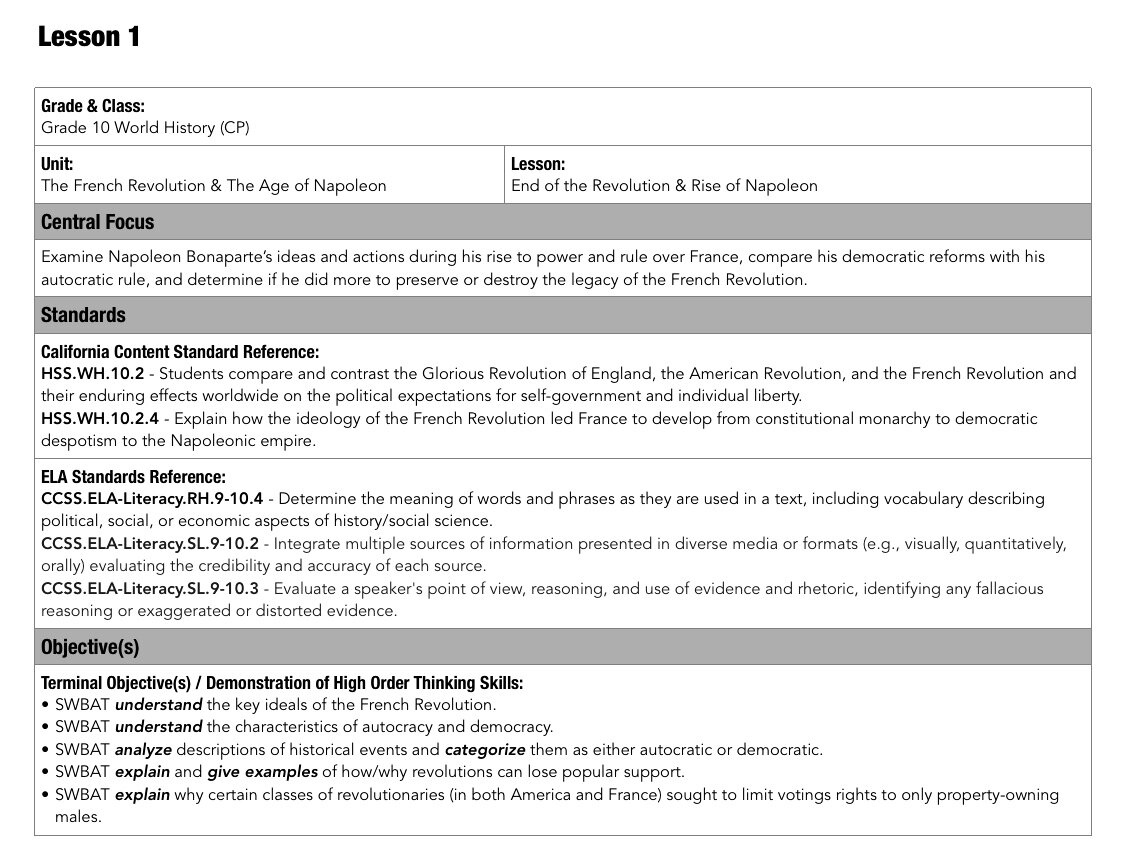Lesson Plans
The following are sample lesson plans for a 10th Grade World History class. These lessons are intended to be parts of more comprehensive World War I and The Age of Napoleon units.
World War I
Lesson 1: The Battle of the Somme
Students will discuss the pivotal Battle of the Somme as it occurred between July 1, 1916, and November 18, 1916, and, by analyzing three historical accounts of the battle from different points of view, answer the day’s Central Historical Question — "Who won the first day of the Battle of the Somme?".
Lesson 2: Use of Propaganda in WWI
Students will discuss the use of propaganda in WWI by both the Allies and the Central Powers. Develop evaluation criteria for successful propaganda. Analyze examples of propaganda using these criteria. Discuss the role of propaganda in mobilizing the civilian population in support of “total war.”
Lesson 3: The War Poetry of WWI
Students will discuss the emergence of war poetry, particularly on the British side, as a voice of both patriotism and protest during WWI. Introduce famous ‘war poets’ and their work. Identify factors which could account for the amount and quality of poetry that arose from the World War I battlefield. Highlight the historical context and significance of WWI poetry and how it helps us understand the war today.
The Age of Napoleon
Lesson 1: End of the French Revolution & The Rise of Napoleon
Students will examine Napoleon Bonaparte’s ideas and actions during his rise to power and rule over France, compare his democratic reforms with his autocratic rule, and determine if he did more to preserve or destroy the legacy of the French Revolution.
Lesson 2: The Napoleonic Code — Art as Historical Evidence
Students will discuss the Napoleonic Code and why — as Napoleon predicted — it is considered his most important and enduring legacy. Discuss the role of art as historical evidence and consider what differing visual depictions of the same historical event or person tell us about the artists viewpoint and intent and the historical context in which they were created.
Lesson 3: The People vs Napoleon Bonaparte — A Mock Trial
Students will apply their understanding of the ideals of the French Revolution, the characteristics of autocracy and democracy, and Napoleon’s ideas and actions to an examination of the arguments and evidence presented by the prosecution and defense in order to reach a verdict on the central historical question — “Did Napoleon do more to preserve or destroy the legacy of the French Revolution?”
“Thought flows in terms of stories–stories about events, stories about people, and stories about intentions and achievements. The best teachers are the best story tellers. We learn in the form of stories.”—Frank Martin



